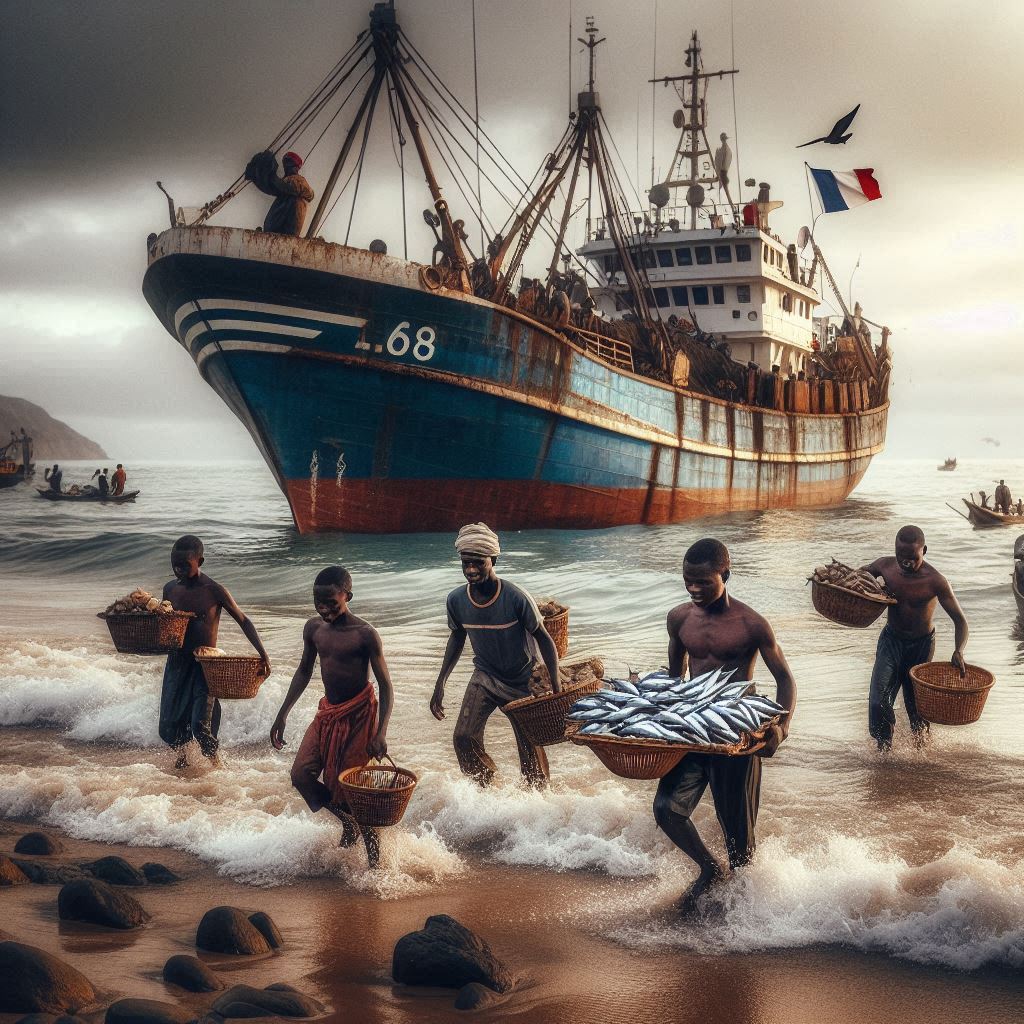In the vast expanse of Africa’s coastal waters, a silent crisis is unfolding. Despite the promise of economic benefits and sustainable development, Sustainable Fisheries Partnership Agreements (SFPAs) and other fishing agreements between African nations and foreign entities have largely failed to deliver on their potential. This article delves into the complex web of factors contributing to this predicament, examining how these agreements, often touted as mutually beneficial, have instead left African countries grappling with depleted fish stocks, compromised food security, and stunted economic growth.
The Allure and Reality of Fishing Agreements
Fishing agreements, particularly SFPAs, have been presented as a win-win solution for both African nations and their foreign partners. In theory, these agreements provide African countries with much-needed revenue and development support, while granting foreign fleets access to rich fishing grounds. The European Union (EU), for instance, has been a major player in these agreements, with a history dating back to the 1970s.
However, the reality on the ground paints a starkly different picture. A comprehensive study by the Sea Around Us project at the University of British Columbia revealed that African countries have lost out on at least $41 billion in fisheries trade since 1980 due to unfair fishing agreements. This figure alone underscores the magnitude of the problem, but the true cost extends far beyond mere monetary losses.
The Ecological Toll
One of the most pressing concerns is the ecological impact of these agreements. Foreign fleets, equipped with advanced technology and large-scale fishing capabilities, have contributed significantly to overfishing in African waters. The Food and Agriculture Organization (FAO) reports that 62% of fish stocks in the Eastern Central Atlantic, which includes the waters off West Africa, are either fully exploited or overexploited.
This overexploitation has dire consequences for local marine ecosystems. A study published in the journal “Marine Policy” found that in West African waters, biomass of certain fish species has declined by up to 50% since 1960. This dramatic reduction not only threatens biodiversity but also undermines the long-term sustainability of fisheries, jeopardizing both food security and economic opportunities for coastal communities.
Economic Disparities and Lost Opportunities
While fishing agreements often come with financial compensation, the economic benefits for African nations have been disappointingly limited. A report by the Overseas Development Institute (ODI) highlights that for every $1 of revenue received by African governments from fishing agreements, more than $6 worth of fish is extracted from their waters.
This imbalance is further exacerbated by the structure of many agreements, which fail to prioritize local processing and value addition. Instead of fostering the development of domestic fishing industries, these agreements often relegate African nations to mere providers of raw materials. The potential for job creation, technological transfer, and the development of a robust, export-oriented fishing sector remains largely unrealized.
For instance, a case study of Senegal’s fishing sector revealed that despite having one of the richest fishing grounds in West Africa, the country’s fish processing industry operates at just 40% of its capacity. This underutilization is directly linked to the dominance of foreign fleets and the export of unprocessed fish, depriving the local economy of significant value-addition opportunities.
Food Security Concerns
The impact of these fishing agreements extends beyond economic considerations, touching on the critical issue of food security. Fish is a vital source of protein for many coastal African communities. However, as foreign fleets deplete local fish stocks, the availability and affordability of fish for local consumption have been severely compromised.
A study published in the journal “Fish and Fisheries” estimated that nearly 10 million people in West Africa alone are at risk of protein and micronutrient deficiencies due to declining fish catches. This nutritional crisis is particularly acute in countries like Senegal, Ghana, and Mauritania, where fish traditionally forms a significant part of the diet.
Governance Challenges and Lack of Transparency
The implementation and monitoring of fishing agreements have been plagued by governance challenges and a lack of transparency. Many African countries lack the resources and capacity to effectively monitor their vast exclusive economic zones (EEZs), leading to widespread illegal, unreported, and unregulated (IUU) fishing.
The scale of this problem is staggering. A report by the Environmental Justice Foundation estimated that IUU fishing costs West African economies approximately $2.3 billion annually. This not only represents a significant loss of potential revenue but also undermines the effectiveness of any sustainable management measures put in place.
Moreover, the negotiation process for these agreements often lacks transparency, raising concerns about corruption and the true beneficiaries of these deals. A study by Transparency International found that in several West African countries, the details of fishing agreements were not made public, making it difficult for civil society and local stakeholders to scrutinize their terms and impacts.
The Way Forward: Rethinking Fishing Agreements
As the detrimental effects of current fishing agreements become increasingly apparent, there is a growing call for a fundamental reassessment of these partnerships. Several key areas require urgent attention:
- Improved Monitoring and Enforcement: African nations need support in developing robust monitoring, control, and surveillance (MCS) systems to combat IUU fishing and ensure compliance with agreement terms.
- Focus on Local Development: Future agreements should prioritize the development of local fishing industries, including provisions for technology transfer, training, and support for small-scale fishers.
- Sustainable Management: Agreements must be grounded in scientific assessments of fish stocks and include stringent measures to prevent overfishing and protect marine ecosystems.
- Transparency and Accountability: Negotiation processes and agreement terms should be made public, allowing for greater scrutiny and accountability.
- Fair Compensation: The financial terms of agreements should be revised to ensure that African nations receive a fair share of the value of resources extracted from their waters.
- Regional Cooperation: African coastal states should work together to strengthen their negotiating position and develop coherent, regional approaches to fisheries management.
Conclusion
The current state of fishing agreements between African nations and foreign entities represents a missed opportunity of staggering proportions. Instead of fostering sustainable development and economic growth, these agreements have too often resulted in ecological degradation, economic losses, and compromised food security.
As global demand for fish continues to rise and climate change further stresses marine ecosystems, the need for a radical reimagining of these partnerships becomes ever more urgent. By addressing the systemic issues plaguing current agreements and prioritizing long-term sustainability over short-term gains, there is potential to transform these agreements into true catalysts for development.
The future of Africa’s fisheries, and the millions who depend on them, hangs in the balance. It is time for policymakers, industry leaders, and international partners to heed the lessons of the past and chart a new course—one that truly benefits African nations and sets a global standard for sustainable, equitable resource management.


